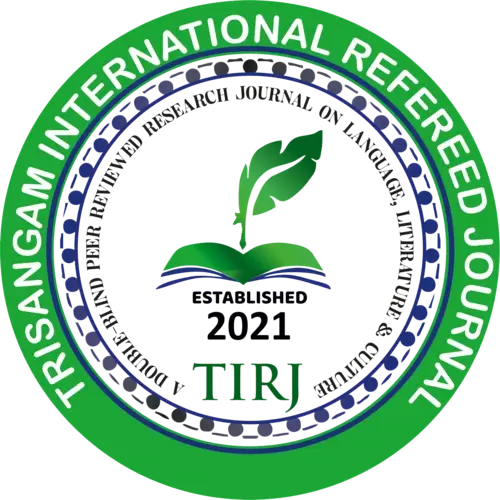Published Paper Details:
TENSION OF WOMEN’S LIFE AND LIVELIHOOD: CONTEXT AMAR MITRA’S ‘DHANAPATIR CHAR’ NOVEL
JADAV MURARI
Dhanapati Sardar, distressed women, Fishermen, Greedy businessman, six-month’s Char.
Amar Mitra a notable popular writer of Bengali fiction. In the last 40 years, changes in villages and cities, changes in life direction, dangerous times and helpless people, various forms of nature have become the subjects of his story and novels. In the novel ‘Dhanapatir Char’, the multifaceted tension of life and livelihood of these endangered people, especially women, has been given a relevant literary form. Dhanapati’s Char is the world of six months. From the end of Ashwin to the beginning of the month of Chaitra this Char is under Dhanapati Sardar, a descendent of Harmad Pedru. It is said that an ancient tortoise, thousands of years old, sleeps with Dhanapati’s chariot on his back; he is also called Dhanapati. He was Harmad Pedru. Fishermen from the mainland come to the Char to catch fish and dry fish. Destitute like Batasi, Ahalya, kunti, Roma, Purnima, Yamuna, Annabibi from places like Ghoradal, Kultali, Kakdwip, Namkhana etc. of the mainland come to Dhanapati’s Char in search of work; on the otherhand, in search of rice. Separated from husband, separated from family, these women involve their lives with the strange rule of Char. They leave their father, mother, brother, sister, son-daughter and come to posture for six months and get a family with the fishermen. When six months are completed that is, when the fishermen leave the Char, the six months of happiness of these women ends. After the month of Chaitra, the fishermen forgot about the women and live happily and peacefully with their families, but women of Char’s six months can’t easily earase the incident from their mind. The memories of women like Batasi, Ahalya resolve around those six months, about their suffering. Whether it is the Government or the common people, everyone is hesitant about the ownership of Dhanapati’s Char. Although the Government considers this Char as Government-own land, the Sardar Dhanapati consider himself the master or owner of this Char through generations. Traditinally, Dhanapati Sardar is recognisedas Sardar by Fishermen and women. Even here, womanizers like Dasharath Byapari have appeared to supply the daily necessities of the common man. Who under the guise of their own business, with the active support of some people in the administration, have become eager to use six-month working women as consumer goods. Destitute women are sent to Delhi or abroad via Howrah or Sealdah stations. The life stories of these distressed women have been given realistic language in the novel ‘Dhanapatir Char’ by renowned fiction writer Amar Mitra.
Journal : TRISANGAM INTERNATIONAL REFEREED JOURNAL
Paper ID : ttirj/January23/article-18
Page No : 175-182
Published In :Volume 3, Issue 1
DOI (Digital Object Identifier) :
E ISSN : 2583-0848


 .
.